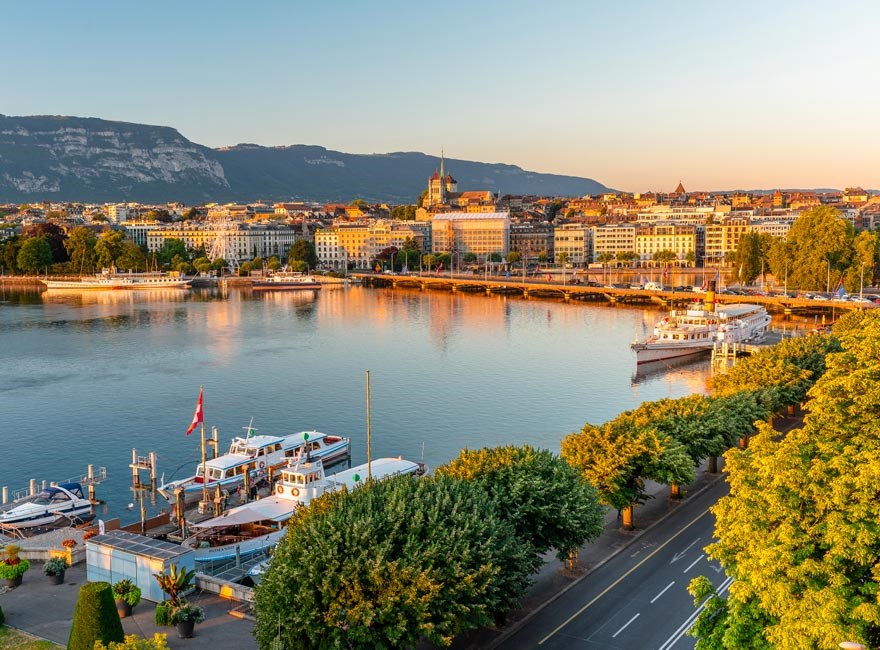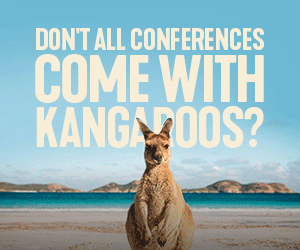Seventy and Counting – Championing a Regenerative Future

The GDS-Movement celebrates the joining of its seventieth destination committed to a regenerative future.
Paris joins Washington, Lima, Berlin, Prague, Zurich, Oslo, Stockholm, Helsinki, Bangkok and other global capitals committed to measuring and improving on its sustainability strategy year on year using the GDS-Index.
The GDS-Index was inspired by the International Congress and Convention Association (ICCA) Scandinavian chapter and MCI in 2012 when fifteen pioneering cities created and launched the Scandinavian Destination Sustainability Index. In 2015 the project evolved into a collaborative partnership between ICCA, IMEX Exhibitions, European Cities Marketing and MCI Group, and the GDS-Index was born. By 2019, 50 destinations were benchmarking, and that has increased through the COVID-19 period to 70 participating Destination Management Organisations (DMOs) and Convention & Visitors Bureaux (CVBs), with more growth projected not only in Europe but particularly in the Americas and Asia Pacific.
Over the years the DMOs that participate in the GDS-Index are showing great results for their efforts. Sustainable destination performance as measured by the GDS-index has increased 14% − before COVID it was 21%. The top ten GDS-Leaders demonstrate a performance increase of 23% − 33% before COVID. Despite an understandable decrease due to the pandemic effects on the supply chain, the annual figures clearly demonstrate how benchmarking combined with a focus on improving strategy, capacity building and inter-city collaboration is enabling DMOs and municipalities to better identify sustainability challenges and opportunities, and act upon them to drive improved performance.
From sustainability to regeneration
Our pioneering 2020 report “the Regenerative Revolution” conducted with IMEX and Marriott, explored and asserted that for the global meetings and events industry to recover and thrive in a future world, we need to rethink, reimagine and redesign a new resilient, inclusive and zero-carbon growth model.
 This deep cultural and systemic transformation requires a paradigm shift in beliefs, values and business models. We need to move on from a “sustainability” focus of making small incremental improvements, towards a holistic regenerative approach that works to restore and rejuvenate communities and ecosystems rather than degrade or merely sustain conditions.
This deep cultural and systemic transformation requires a paradigm shift in beliefs, values and business models. We need to move on from a “sustainability” focus of making small incremental improvements, towards a holistic regenerative approach that works to restore and rejuvenate communities and ecosystems rather than degrade or merely sustain conditions.
What is regenerative leadership?
At the GDS-Movement, we have been using the principles of biomimicry to observe nature and to inspire learning about how both associations and DMOs can better design and manage their communities. Here are four of the key insights gained from our Regenerative Destination Management Framework, which will be shared in our forthcoming 2021 GDS-Whitepaper:
1) Mindset: Regenerative leadership is about implementing a change of mindset in your organisation. About moving from a linear to a living system approach, and understanding that everything is interconnected and interdependent. It's about exploring and understanding the relationships and patterns that exist between all the different stakeholders in your unique ecosystem. Then it’s about challenging the status quo, and facilitating a process to rethink the future, redefine purpose, and reimagine growth holistically for the visitor economy. Wonderful Copenhagen are shining examples of regeneration: first with their pioneering strategy to define tourism and events as a catalyst for sustainable urban development, then with their excellent foresight research into the “Future of Congresses”, and now with their Legacy Lab approach to catalysing long term positive impact from congresses.
2) Collaborative Design: From nature we can see that healthy ecosystems are enabled by all the different flora and fauna working together in harmony. Regenerative leaders build expertise in stakeholder engagement, collaboration and alignment. They excel at designing intentional processes to listen to all voices in a destination's ecosystem, and to facilitate a process around key stakeholders in order to inclusively co-design the future so that everyone thrives within the societal and natural boundaries of the place. Geneva Tourism has been using the COVID-19 period to consult extensively and listen to its stakeholders through interviews, hosting meetings and online surveys. The culmination of which has been the development of an effective cross-community taskforce of industry players, the municipality, clients and social leaders, who have met regularly through 2020 to co-create its regenerative visitor economy strategy.
 3) Storytelling: “Regen Leaders” excel at taking a co-created strategy, and then communicating a bold vision of success encapsulated with a powerful and inspiring narrative. They realise that for this new story of purpose, human stories of trial, success and failure build credibility within the system, so that they don’t have to have “all the answers right now”. Glasgow has been on a major journey of rethinking and rejuvenating the city and its communities. The “People Make Glasgow Greener” campaign has inspired and empowered the DMO and its stakeholders to be one of the first globally to declare a climate emergency, to develop collective climate action plans, and to use sustainability to win major events about sustainable development (COP26).
3) Storytelling: “Regen Leaders” excel at taking a co-created strategy, and then communicating a bold vision of success encapsulated with a powerful and inspiring narrative. They realise that for this new story of purpose, human stories of trial, success and failure build credibility within the system, so that they don’t have to have “all the answers right now”. Glasgow has been on a major journey of rethinking and rejuvenating the city and its communities. The “People Make Glasgow Greener” campaign has inspired and empowered the DMO and its stakeholders to be one of the first globally to declare a climate emergency, to develop collective climate action plans, and to use sustainability to win major events about sustainable development (COP26).
4) From KPIs to Impact: Developing a flourishing destination requires a different set of metrics, tools and skill-sets. Cities that participate in the GDS-Index develop insights, practices, and processes in non-financial measurement of activities, but most importantly on outcomes and impact. Göteborg & Co (the leading destination in the GDS-index for the last 4 years), is developing a digital data hub that brings together the multitude of data about tourism and events, and then offers access to that cleaned and organised data via an open portal. This will help them to develop a powerful dashboard of financial, social and environmental impact indicators, and to enable others to benefit from this data.
The GDS-Movement and its 70 cities are making great progress at developing action and impact based on the concepts of regeneration. The GDS-Index opens for benchmarking on the 1st of June 2021 and represents the most comprehensive and far-reaching assessment of sustainable and regenerative destinations. This is a powerful tool for both associations looking for better destinations and for the DMOs who wish to step up their performance.
*Article kindly provided by the GDS-Movement and written by Melissa Baird.
Other Articles
About Us
Supported by the Union of International Associations (UIA), the International Association of Professional Congress Organisers (IAPCO) and the Interel Group, the global public affairs and association management consultancy, Headquarters Magazines serve the needs of international associations organising worldwide congresses.















